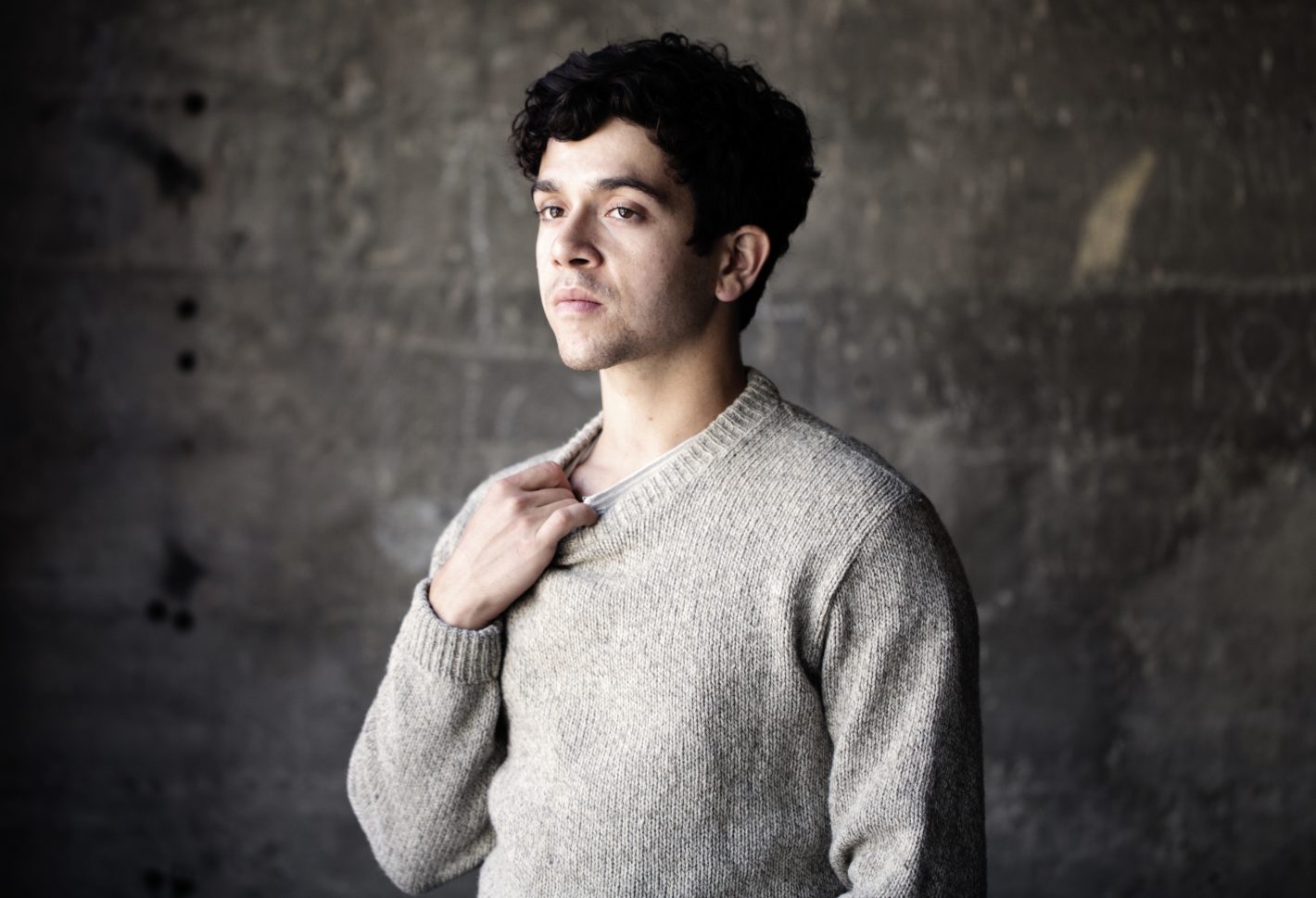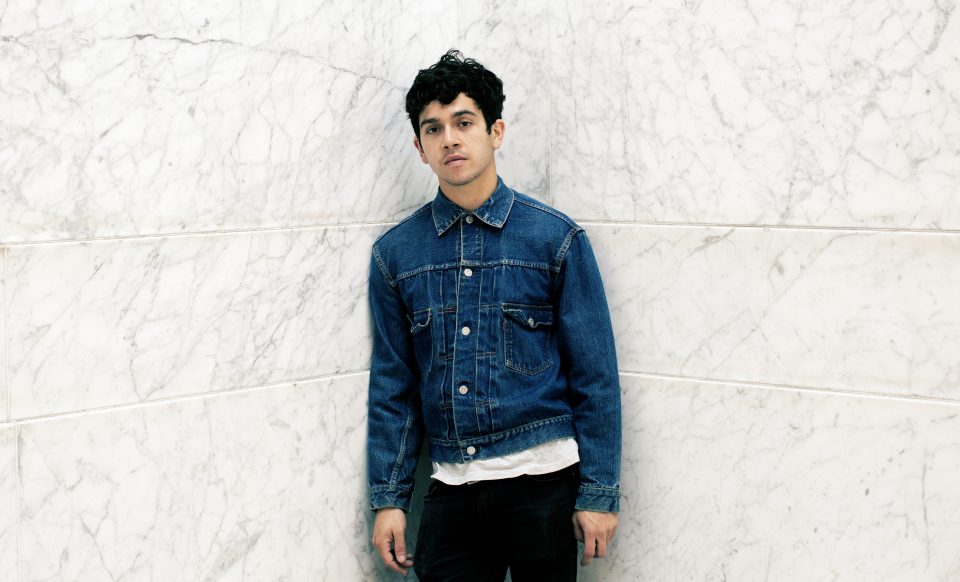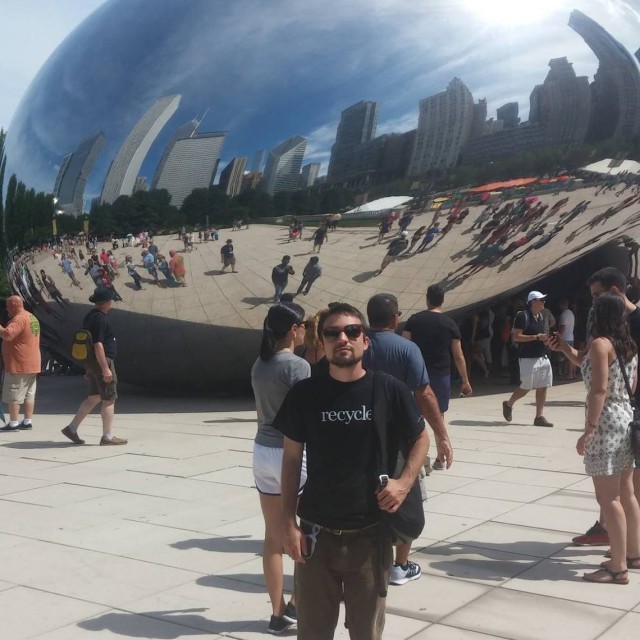 Photos by Andrew Paynter
Photos by Andrew Paynter
Pop music gets all the attention, but rarely the credit it deserves as a powerhouse of infinitely mutable creative potential. Unlike more ostensibly sophisticated genres, it can’t be pinned down to any one palette of instrumentation, and even if it periodically backs itself into a corner of rote vapidity and commercial navel-gazing, it always leaves room somewhere for the tables to be flipped, the rules overwritten and the infiltrators to subtly inject new modes and meanings into the DNA. For Damien Verrett, multi-instrumentalist and former prime mover of math rock experimentalists The Speed of Sound in Seawater, pop is simply the broadest possible canvas on which to test his constantly developing songwriting and production abilities while wryly toying with perpetual pop concerns such as power, authenticity and ego.
As So Much Light, Verrett has gradually cultivated these new stylistic leanings over several years, a time roughly encompassing his graduation from UC Davis, the humbling experience of moving back home and the countless hours spent chiseling at and defining the parameters of his new aesthetic. Toning down the intricate acoustic guitar work of his math rock days, he has taken the intimate, miniaturist bedroom pop of his previous solo project, Mansion Closets, and subsumed it into the more ethereal strains of present-day R&B. Sometimes the results can be downright haunting, as it is with last year’s single “Justin Bieber at the Gates of Hell,” which marries supernatural lyrics and macho posturing with dread-tinged, Erik Satie-like piano ambience. Much of Verrett’s latest album, Oh, Yuck, however, is characterized by a newfound ebullience in sound and vision, as showcased in the new video and single “Be Afraid,” a sensational piece laden with pipe-organ hooks and a carnivalesque atmosphere. Each track teems with perfectly placed flourishes on various instruments that make the record feel like it was recorded in strikingly different locales instead of the confines of a suburban Elk Grove bedroom.
The attention paid to every detail, the clear unity of impulse going into a tuneful record, seems enormously exciting in this day and age. If ever there was an era in dire need of more variance, more mystique and topsy-turvyness to its current music scene, it’s ours. In that sense, Oh, Yuck is weaponized catchiness, a compelling music-box with the depth to match its surface, seeking out a wider audience like a missile with inexhaustible imagination to fuel its fiery surge.
One can’t help but compare Verrett’s trajectory to a certain generation of artists who arrived in the wake of the first great era in alternative music. Young punks and experimentalists who began to move away from their scenes’ growing esotericism and set their sights on infiltrating the charts via a “new wave” of subversive takes on pop concepts. As he continues to extend his reach, one hopes that he continues the work of those forebears, leading new listeners further down the rabbit hole.
Below, we get Verrett’s take on everything from Disney musicals to H.P Lovecraft to Kanye West, and how the connection between all three may one day unlock the secret to the perfect record.

What’s the first melody you remember hearing that made an impact on you?
I actually remember.There was this song from Aladdin, I think it was “One Jump Ahead,” one of the first songs in the film. There’s this melody in it, I remember it sticking out to me when I was just a baby—I thought it was so beautiful. That, and “A Whole New World,” that whole melody. I think my first love of music came from Disney movies because it was the first really composed music I was ever exposed to. As a kid, you watch those movies so many times that it’s just like an earworm, and it must do something to your musical brain. It’s funny to think about now, because I think I lean in to some of those melodic stylings a little bit when I write songs.
How did you get into the math rock genre originally?
It’s a really big Sacramento influence, actually. I didn’t really give that as much credit until recently. When we’d travel with my old band, The Speed of Sound in Seawater, people would say “Oh, you guys are from Sacramento, you must know Tera Melos and Hella.” Other people perceived this huge math rock scene here where everybody knew everyone else, but they were from a totally different generation of Sacramento musicians. We weren’t really aware of how much the trickle-down from their musical style affected us, because we had a little venue in Elk Grove, where bands like Dance Gavin Dance used to play. Just by nature of it being near Sacramento, there was a lot of pretty complex polyrhythmic stuff going around. It’s definitely something I still like, and I’m glad to have had that influence, but I was always more interested in the pop side of things. I’m glad to have expanded my influences a bit; more complex, guitar-driven stuff for a while. I think it served me well in the long run.
What led to your huge change of style toward pop/R&B in the last few years?
It was conscious. I think the goal was always to be really expansive. I don’t want it to sound like it’s one person, I want it to sound cinematic, kind of orchestral in a sense. It’s very visual, and I plot out different scenes when I’m making music. As I got into programming and sound design, I realized a guitar can only do so much. Now I can write woodwinds, I can write weird bass sounds that aren’t anything like real instruments, I can have more nuance. I don’t feel attached to any one compositional element.
I remember in high school, and it might have been just because of the time period when we were growing up, but I remember people saying “Oh, pop music is so shallow and stupid, it’s not substantial in any way.” So I gravitated toward indie rock— it felt more substantial. But now I feel like the pop that comes out is done with so much more intention, the production, the songwriting and the arrangements and instrumentation. I started listening to the latest Justin Timberlake album that came out around 2013, The 20/20 Experience, and I was like “Oh my god, this is so much more complex, production-wise, than most experimental stuff I’ve been listening to.” It was so much more impressive, and it was being done at such a higher level. I think that opened my eyes to this way bigger world that was out there.
Does it kind of feel like you’re infiltrating the pop genre?
Yeah, especially lyrically. I think there is something to be said about pop music being a little bit shallow in terms of the ideas that are explored. We don’t need more breakup songs that explore these ideas in ways that they’ve already been explored. So for me, I want to know what a pop song sounds like and what it’s about in 2017 and what does it feel like it needs to be about to push the envelope in the present and also age well? There’s so many love songs from say, 50 years ago, and you listen to them now, and the ideas that some of them explored seem really dated. And oftentimes, the main thing you find is that the music is really misogynistic or shallow. So I wonder, what does the male pop star need to sound like in 2017 to not sound ridiculous in 2027?
I think it’s a good time to be making music that’s accessible, because complexity-wise, the ante is being upped in pop. The chord choices people are making are so less standard and boring and cheesy. People are hitting emotional tones that are really cool and complex and feel more like the human experience. It’s like you have to now, which is great. It’s such a good move, it’s going to make everything so much better socially and artistically.
How was the “Be Afraid” video thought out?
I did the video with Giraffe Studios in L.A. It’s these two sisters, Nicki and Juliana Giraffe. The video was their idea—they definitely heard the potential for a circus theme in there. They wanted specifically to reference Chitty Chitty Bang Bang. They sent me a clip from it; I’ve never seen the movie, but there’s this one scene where a doll comes out of this box and does this cute choreographed dance. They wanted it to feel kinda like that combined with an old Nosferatu-style horror movie—very harshly lit, very wide and surreal. I thought it was perfect. I felt like they did a really good job putting the song into a visual medium.
There seems to be a big supernatural underpinning to your songs.
That’s definitely something I’ve done a ton of throughout all my projects. I think it just has to do with my own interest in fantasy and horror. I’m a huge H.P Lovecraft fan. There weren’t many avenues to explore that in this record, but in my old band, I think I had around four songs about Lovecraft. That, and I’ve written like two songs about Buffy. Horror is my favorite genre ever. The sense of scale and drama, a cinematic feeling, is something I’m chasing. It sometimes feels like I’d rather be making movies if I had the means, but this is sort of like the next best thing. Budget-wise, you can make a song feel huge for a lot less money than you can with a feature-length film, or even a short film.
You tackle the ego a lot in your lyrics. What does it mean to you?
Yeah, it’s a running theme. I think it has a lot to do with just writing pop music, which is like this super egotistical pursuit. It kind of necessitates being that person and being so macho and so about your own brand, and it’s something I don’t really identify with. So I feel there’s a way to speak about those things that rings truer to me, and that’s how it comes out. Where I see the holes in that ideology. You can’t be so about your own being and also be a good person contributing to society on the whole in a positive way.
A lot of Oh, Yuck is in my own head, my own ego. That’s why the album art is of me at the bottom of a well, because that’s what I felt like while writing these songs. I was super isolated, just me, writing these songs. I imagine that that’s where I’m performing all of the songs for no one, and nobody is hearing them—none of them are getting out of the well. It’s like a jab at myself. Maybe that’s actually the reality of what it is, but then again maybe it’s good for me to be down there in that well, doing it for myself.
What are your biggest musical influences?
The main one always is Joanna Newsom. I’m a huge Joanna Newsom fan. I think she creates a world with every one of her releases. It’s like when you’re watching a movie, and you forget that everyone’s an actor, that’s what her music is like. You forget that there’s anything outside of those songs, or that anyone has written any songs other than Joanna Newsom. I’d love to someday write a pop record that people feel like they can’t talk over. Like, you never put on Joanna Newsom at a party and just have a conversation over it. It sucks you in. I love Prefab Sprout. I was listening to them so much while writing this record, because the complexity of their arrangements and their chord voicings. I think if they had never existed and they came out today, people would go crazy for it, it’s still next-level.
And also, maybe it’s obvious, but Kanye West. I was listening to him a lot because when I was writing this, I felt very isolated. I’d just graduated and moved back in with my folks, wasn’t really doing anything and listening to earlier Kanye stuff. There I was, wanting to do this thing that was so lofty and ambitious, but having such humble surroundings, and kind of impotent about my ability to direct my own life.
You’ve said that you like to think of your songs as plays while writing them. Would you ever do a concept album?
I’d really like to weave a story into the next one, because that’s what I used to do with every Speed of Sound in Seawater song. They were almost all stories. It felt more appropriate to do the more introspective thing for my first pop-style record, but I think that the next time, even it’s not explicit, I’d like to make the songs more connected. I think it would be a huge challenge that would be a lot of fun.
And I have a lot of material already, and it feels like it’s all a part of its own world more so than Oh, Yuck did. On this album, it feels like a lot of things change and shift. For the next one, I’d want everything to be in one environment.
So Much Light’s new album, “Oh, Yuck,” is out Aug. 11, 2017 on Anti Records. Catch So Much Light locally in Sacramento on Saturday, Aug. 26, at The Red Museum’s Red Ex: Vol. 1 event alongside No Age, Ganglians, Hobo Johnson, Dog Rifle, Young Aundee (w/ Dusty Brown) and many others. There will also be live comedy, food, drinks and more. For info on that event, visit the FB event page. For more on So Much Light, visit Somuchlight.com.
**The interview above first appeared in print on pages 18 – 19 of issue #245 (July 31 – Aug. 14, 2017)**


Comments